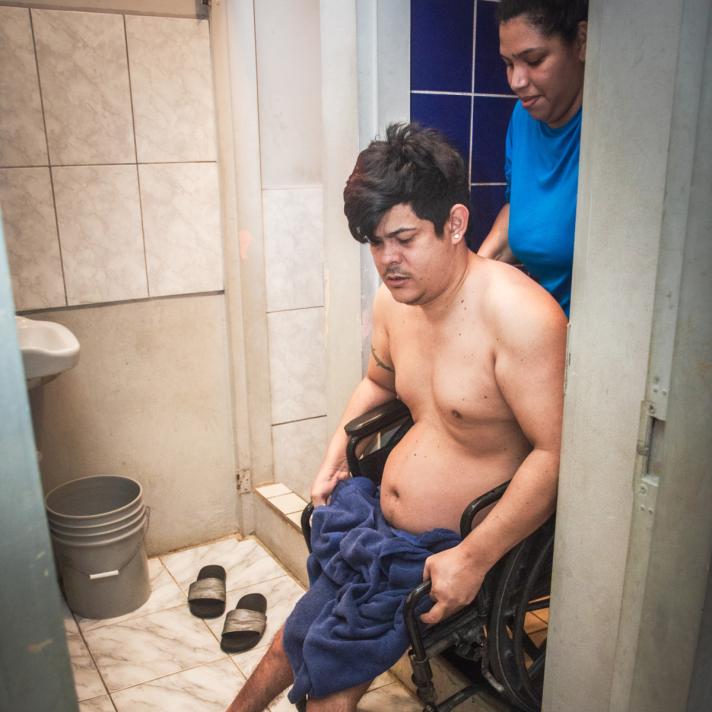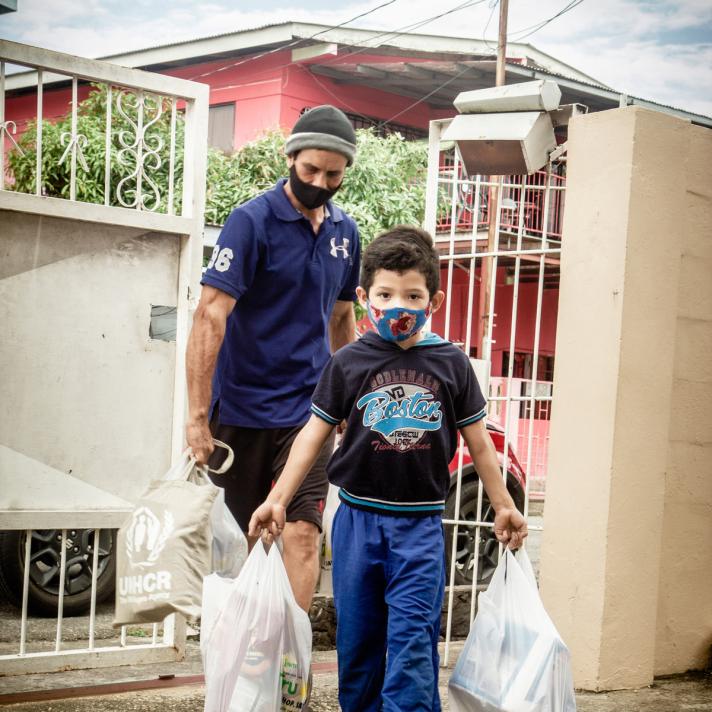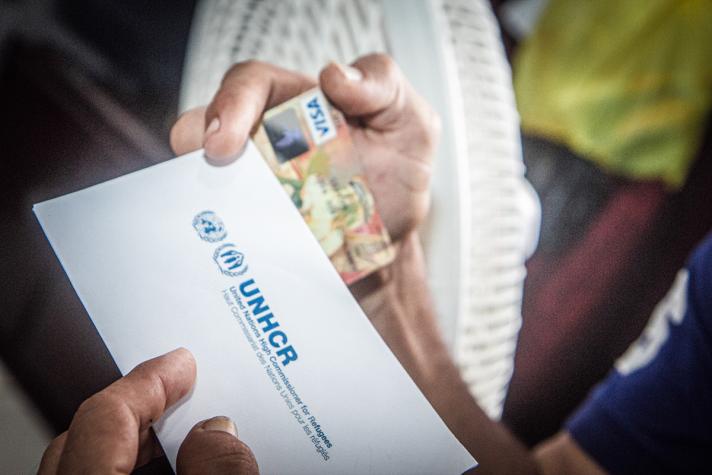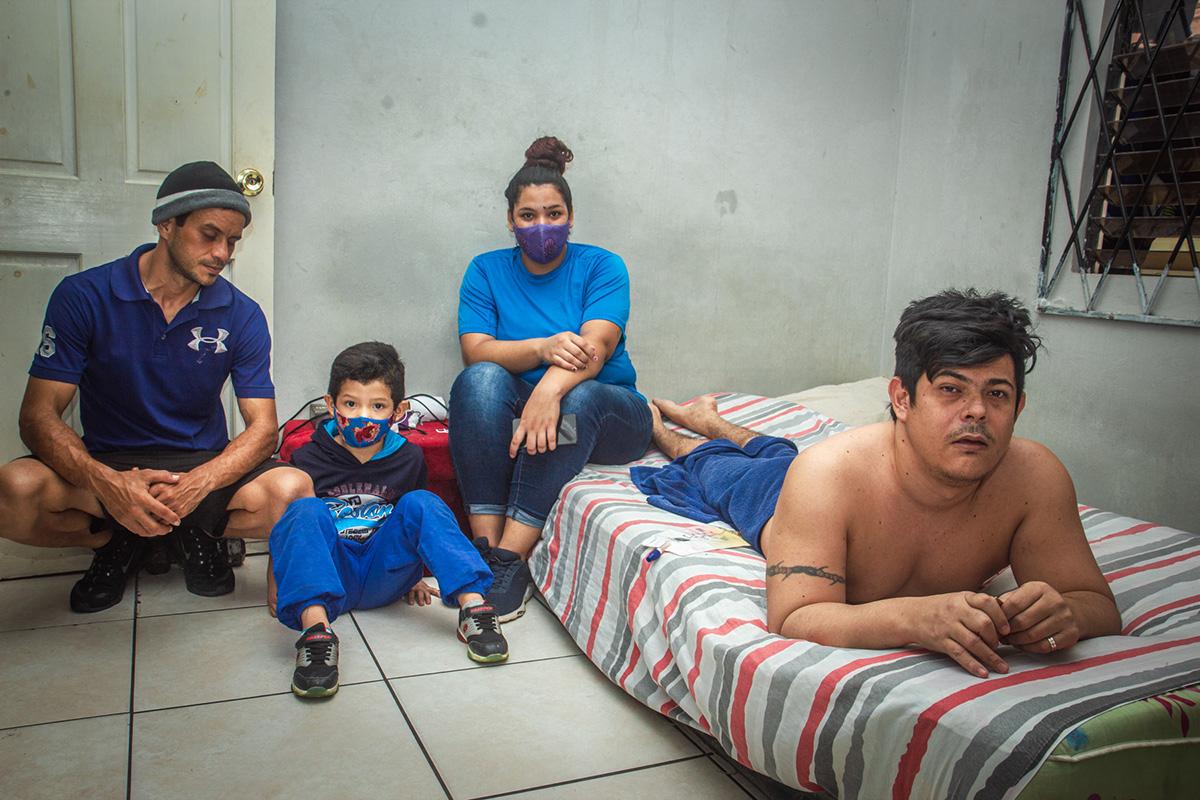Erwin Barreto Vazquez was 21 years old when a car crash left him paralysed from the waist down in 2005, in Maracaibo, Venezuela.
More than a decade after the accident, the country plummeted into a deep socioeconomic crisis and Erwin found it increasingly difficult to provide for his family. With no other options, he fled with his family to Trinidad and Tobago.
When COVID-19 hit Latin America and the Caribbean in early 2020, some of the most vulnerable, like Erwin, needed further support.
The EU funded the UNHCR to provide humanitarian aid to Venezuelans who fled their country to escape hunger and those affected by COVID-19. Erwin was one of the many people who received humanitarian aid through cash support in Trinidad and Tobago.
Since 2015, 7.1 million Venezuelans have left their country, with 6 million scattered across Latin America and the Caribbean. It is the largest forced displacement in the region’s history and one of the largest migration crises in the world.
In 2023 alone, the EU has allocated €75 million to help vulnerable Venezuelans inside and outside the country with emergency healthcare, cash assistance, food and protection, among other areas.
“In Venezuela, every month I had to choose whether to buy food, nappies or medicine,” Erwin says. He and his family came to Trinidad and Tobago to escape hunger, but with the pandemic, their resources collapsed.
© UNHCR, 2021 (photographer: Mariela Ruiz). All rights reserved. Licensed to the European Union under conditions.

Confined to his home with no opportunity to support himself and his family, Erwin lived in an extremely vulnerable situation. UNHCR staff met and supported him thanks to an EU-funded long-term cash assistance programme.
© UNHCR, 2021 (photographer: Mariela Ruiz). All rights reserved. Licensed to the European Union under conditions.

As moving around is complicated for Erwin, his brother Johan helps him to collect money and buy food and medicine for the whole family. Beneficiaries like Erwin receive a card on which every month UNHCR deposits cash, which they can immediately withdraw.
© UNHCR, 2021 (photographer: Mariela Ruiz). All rights reserved. Licensed to the European Union under conditions.

D’Urso, EU humanitarian expert for the Caribbean. “It is unconditional: beneficiaries use it for what they need. It also reduces the risk of exploitation.”
© UNHCR, 2021 (photographer: Mariela Ruiz). All rights reserved. Licensed to the European Union under conditions.

“I am thankful to UNHCR and the EU for their assistance: I don’t know what I would have done without it,” Erwin says. “My hope is that one day my son will be able to go to school and have a life better than mine.”
© UNHCR, 2021 (photographer: Mariela Ruiz). All rights reserved. Licensed to the European Union under conditions.

Erwin is one of 801 Venezuelans who were granted refugee status in Trinidad and Tobago in 2021. The island hosts over 35,000 refugees and migrants from Venezuela. Like Erwin, they fled due to widespread shortages of basic items and insecurity.
© UNHCR, 2021 (photographer: Mariela Ruiz). All rights reserved. Licensed to the European Union under conditions.
Story by UNHCR Trinidad and Tobago.
Publication date: 18/04/2023



